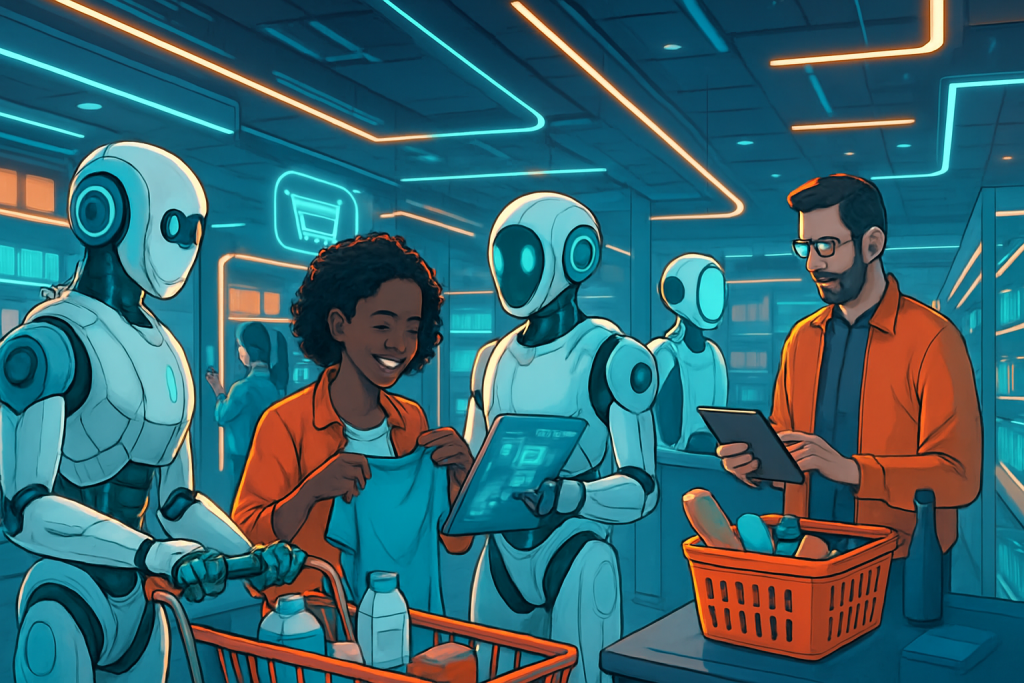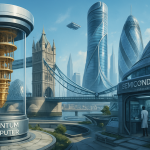Bentonville, Arkansas. Not exactly known for its cutting-edge tech scene, right? More like the heartland of retail, the land of rollback prices and greeters. But yesterday, at Walmart’s 2025 Opportunity Summit, Bentonville was ground zero for a crucial conversation about the future of work, a future inextricably linked to artificial intelligence. The message, delivered by heavy hitters from LinkedIn, Walmart, and OpenAI, wasn’t subtle: embrace AI, or get left behind.
The summit, a gathering of around 300 professionals representing companies like Kaiser Family Foundation, Bank of America, Merlin Entertainments, and Blackstone, wasn’t just another corporate pow-wow. It was a strategic huddle, a collective attempt to navigate the rapidly approaching AI tsunami. And the undercurrent was clear: the fear of job displacement isn’t the biggest threat. The real danger, they argued, is failing to adapt.
Think of it like this: remember the early days of the internet? Some businesses clung to their old ways, dismissing the web as a fad. They printed catalogs while their competitors were building e-commerce empires. We all know how that story ends. The executives at the Opportunity Summit are clearly trying to prevent a similar scenario from unfolding with AI. They’re essentially saying, “Don’t be Blockbuster. Be Netflix.”
Matthew Griffin, founder of the 311 Institute, delivered a keynote that was both inspiring and a little terrifying. He predicted that AI could surpass human intelligence by 2030. That’s only five years away! While some might envision a Terminator-style dystopia, Griffin urged attendees to view AI as a tool to augment, not replace, human skills. It’s about becoming a cyborg of sorts, a human-AI hybrid, leveraging our unique abilities alongside the raw processing power of machines.
This isn’t just about tech companies pushing their products, either. Walmart, for instance, has a vested interest in ensuring its workforce is prepared for an AI-driven future. Imagine self-checkout systems that can not only scan items but also detect subtle signs of shoplifting, or algorithms that optimize inventory management in real-time, anticipating demand with uncanny accuracy. These are the kinds of applications that are already transforming the retail landscape, and Walmart wants to be at the forefront. But to get there, they need a workforce that’s comfortable working alongside these intelligent systems.
The sentiment echoes a similar summit held in Washington, D.C., the previous year, where companies like Home Depot, McDonald’s, and Verizon discussed ways to offer higher-paying jobs to workers without traditional four-year degrees. This suggests a broader corporate effort to rethink education and training, focusing on practical skills and adaptability rather than just academic credentials. It’s a recognition that the skills gap is widening, and traditional education models aren’t keeping pace with the demands of the AI-powered economy.
But what does this mean for the average worker? Well, according to Griffin, nearly all jobs will change as AI becomes more capable. The ability to code might not be as valuable as the ability to collaborate with AI coders, for example. The emphasis will shift towards uniquely human skills like critical thinking, creativity, emotional intelligence, and complex problem-solving. Think of it as the rise of the “AI whisperer,” someone who can effectively communicate with and leverage the power of AI to achieve specific goals.
This also raises some serious ethical and societal questions. Who gets to decide how AI is used? How do we ensure that AI systems are fair and unbiased? And how do we protect workers from being exploited or displaced by automation? These are complex issues that require careful consideration and open dialogue. The summit in Bentonville was a step in the right direction, but it’s just the beginning of a much larger conversation.
The financial implications are enormous. Companies that successfully integrate AI into their business models will likely see significant gains in productivity and profitability. This could lead to increased investment in AI research and development, further accelerating the pace of technological change. Conversely, companies that fail to adapt risk falling behind, losing market share, and ultimately becoming obsolete. We’re talking about a potential reshuffling of the global economic order, with AI playing a central role.
So, the next time you’re browsing the aisles of Walmart, remember that the seemingly mundane act of shopping is being transformed by the power of AI. And consider this: the real opportunity lies not in fearing the machines, but in learning to dance with them. The future of work is here, and it’s powered by artificial intelligence. Are you ready to plug in?
Discover more from Just Buzz
Subscribe to get the latest posts sent to your email.


